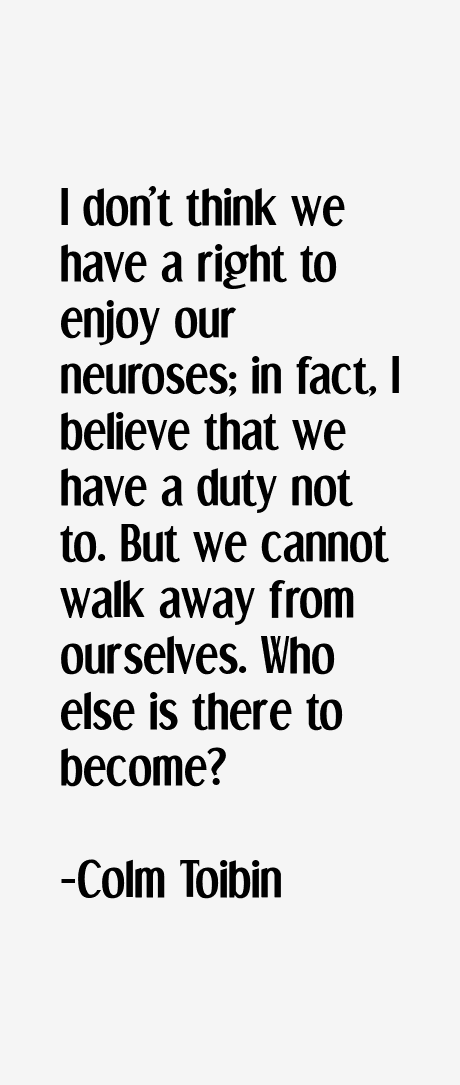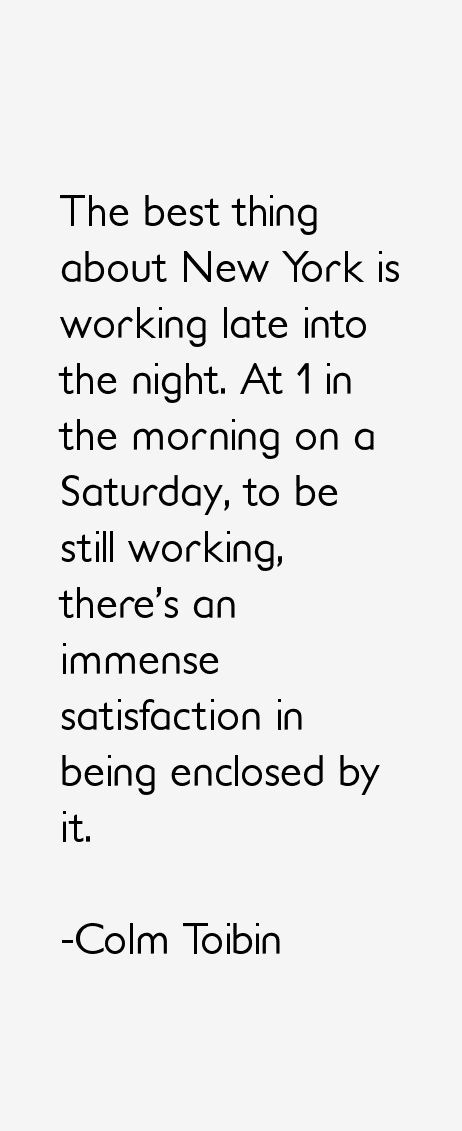Colm Toibin Quotes & Sayings (Page 6)
Colm Toibin quotes and sayings page 6 (novelist). These are the last 10 out of 60 quotes we have.

“I don't think we have a right to enjoy our neuroses; in fact, I believe that we have a duty not to. But we cannot walk away from ourselves. Who else is there to become?”
“I think the whole business of people emigrating was that no one ever told them, although everyone knew, especially if it was to the United States, that it was forever, and the party before you left was called an 'American wake,' in the sense that they knew you wouldn't come back.”
“I went to live in Barcelona in 1975, when I was twenty. Even before I went there, I knew more about the Spanish Civil War than I did about the Irish Civil War. I liked Barcelona, and then I grew to like a place in the Catalan Pyrenees called the Pillars, especially an area between the village of Flavors and the high mountains around it.”
“I work very deliberately, with a plan. But sometimes I come to a point that I planned as the end and it needs softening. Ending a novel is almost like putting a child to sleep - it can't be done abruptly.”
“I'm slightly influenced by sport in that I like the idea of trying, like an athlete, to keep absolutely ready. That's an emotional thing, almost. I don't mean physically, although I play tennis. But you try to keep yourself ready.”
“My first novel was turned down by about twenty publishers over a period of two and a half years. Because my name is Irish and would not be familiar to English editors, one of them said: 'If she writes anything else, do let us know.' Slowly, very slowly, the books began to sell and be noticed.”

“The best thing about New York is working late into the night. At 1 in the morning on a Saturday, to be still working, there's an immense satisfaction in being enclosed by it.”
“The only routine I have is that I finish everything I start. I wake up early every day - about 6.30 A.M. - but I do not work every day. I could laze for a day or two, but I wouldn't do it for three.”
“When a book comes from the publisher and you see it for the first time... Of course it's not remotely like seeing a baby for the first time, but I can remember with each book what room I was in when I opened it. That would be excitement, though, I think. Not pride.”
“When I was 19, I thought I wanted to be an English civil servant. It was the most exotic thing at the time - can you imagine, in the middle of the IRA bombing campaigns? I saw an ad inviting Irish applicants for an induction course, so I signed up.”
Colm Toibin Quotes Rating
No Ratings Yet
Leave A Comment
























